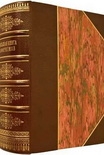Loverly:The Life and Times of My Fair Lady (Broadway Legacies) by McHugh, Dominic (best ereader for pc .TXT) 📗

Book online «Loverly:The Life and Times of My Fair Lady (Broadway Legacies) by McHugh, Dominic (best ereader for pc .TXT) 📗». Author McHugh, Dominic
Yet the fact that there is no census on the point makes this “operetta” label problematic. Genre is a two-way process: it exists so that audiences can access a set of identifiers to which they can relate and so that writers can function within some kind of framework. But it is not meant to be constrictive. Since each audience member brings a different set of experiences to his or her viewpoint, the generic markers have to be strong for a work’s classification to be unambiguous. That might be the case with an action or horror movie, but much of My Fair Lady is so unlike anything else that it is easy to have sympathy with Ethan Mordden’s view of the piece as sui generis (“without genre”).18 Mostly, generic readings do not tell us very much about My Fair Lady, yet it is interesting to ask why commentators might want to pursue them. The broadest reason is actually complimentary to the show: relating it to long-established pieces makes it part of a stronger historical lineage. And this is often related to the fact that Frederick Loewe was born and raised in Germany, and was therefore culturally allied to both Western art music and operetta. He also had a background in writing German cabaret songs, several of which were published.19 Accounts of Loewe’s life tend to emphasize the fact that his father sang in operettas in Berlin, and the composer himself propagated tales that he studied with Ferruccio Busoni while in Europe, supposedly alongside Kurt Weill, although this particular claim raises some doubt.20 Loewe, a little like Weill, has always been regarded as slightly apart from his “American” colleagues. Lerner, too, has sometimes been connected with Europe more than America because of his British education, which is perhaps why Zinsser says that “Of all American lyricists, [he] was the nearest descendant of WS Gilbert; he could have written lyrics for Sir Arthur Sullivan.”21 But no specific example is given by Zinsser or any other writer making these assertions, and they ultimately tell us very little about the show or how it might be interpreted.
Nor does the claim that the score in some way evokes the nineteenth century or early twentieth century really ring true; Loewe is subtler than that. Even if one does not entirely accept the piece as being “beyond genre,” there is surely too wide a range of generic markers to group the whole score under one umbrella. For instance, the dance-like elegance of “Why Can’t the English?” may have an air of the archaic about it, but this is clearly intended to reflect Higgins’s pomposity and arrogance: he is old-fashioned, and a stilted style is used to depict his arrogance. Likewise, Eliza’s “Wouldn’t It Be Loverly?” has moments of delicacy, but this is offset by the cockney roughness of the block chords that run through most of the number, not to mention the coarse all-male chorus. If anything, the “London musical” (for instance, Noel Gay’s Me and My Girl) is the type being evoked here. Doolittle’s “With a Little Bit of Luck” and “Get Me to the Church on Time” are a flagrant evocation of the music-hall background of Stanley Holloway, for whom the role was written.22 Again, the gentlemanly elegance of the verses of “I’m an Ordinary Man” is a result of Loewe’s gracefulness of line, and the loose, fluid structure of the song is sophisticated, but the dotted rhythms, thumb (tenor) line, and numerous chromatically modified chords are pure Broadway in their pedigree. Similar ingredients characterize “A Hymn to Him” and “I’ve Grown Accustomed to Her Face,” and the short (twenty-bar) melody of the latter also signifies a freedom of form that put the composition firmly in the Broadway of the 1950s. The London-industrial East End brusqueness and characteristic Broadway tonic-dominant accompaniment of “Just You Wait” are also signs that the score is a long way from relying on the kind of musical language found in nineteenth-century operetta. “The Rain in Spain” and “Show Me” employ exotic, particularly Latin, styles of music that are very much in line with songs such as “Hernando’s Hideaway” from The Pajama Game and “Whatever Lola Wants” from Damn Yankees, two musicals that opened in the years closely preceding





Comments (0)